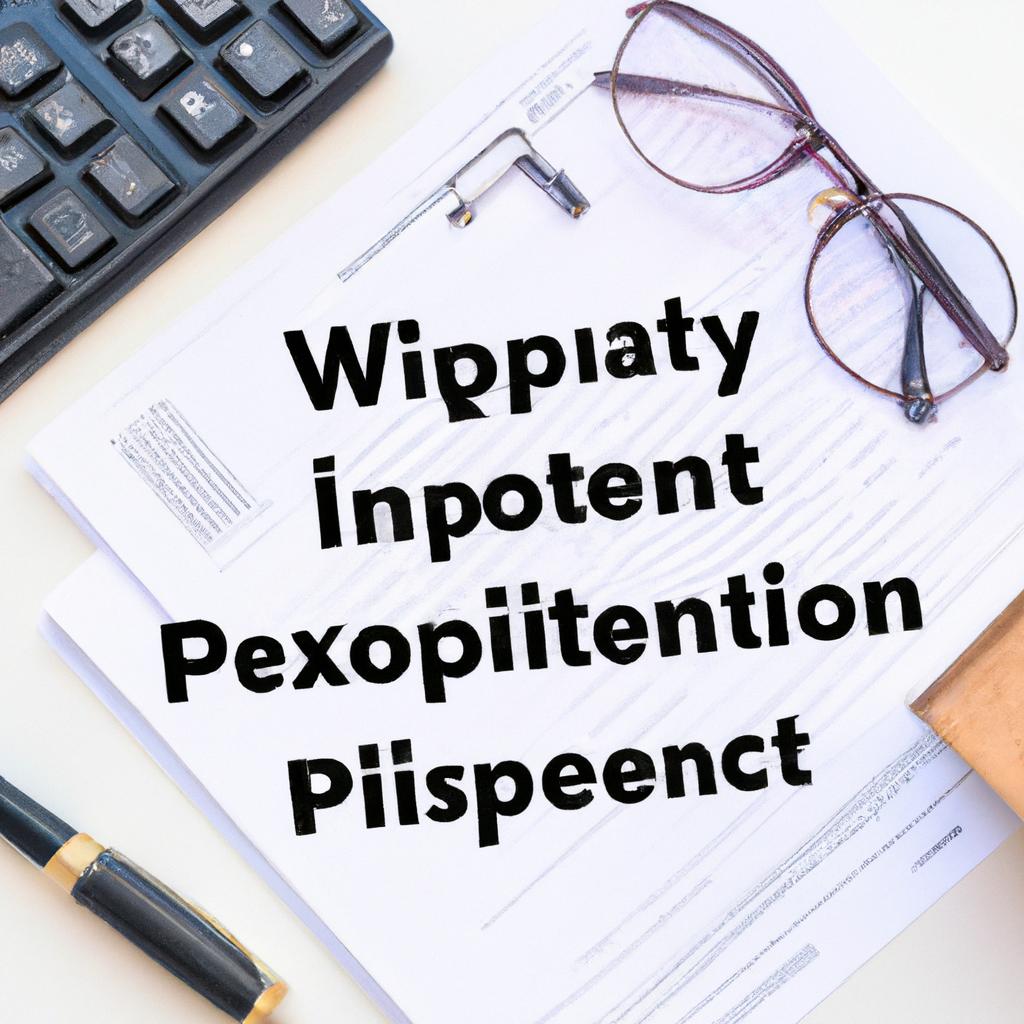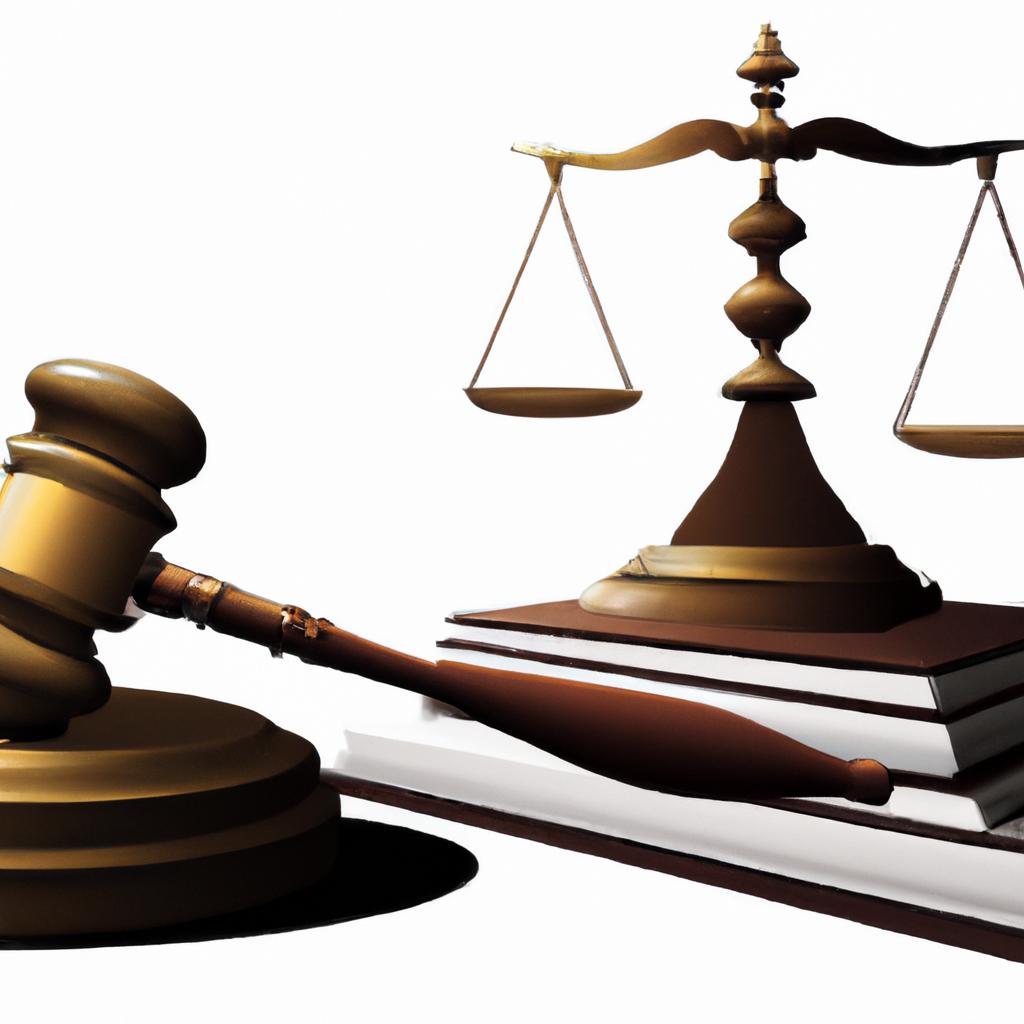In the intricate world of estate planning, the concept of “will property” holds a significant role in determining the distribution of assets upon one’s passing. As experienced practitioners at Morgan Legal Group, located in the heart of New York City, we understand the complexities and nuances surrounding wills and the property they encompass. In this article, we delve into the intricacies of will property and explore its implications in the realm of estate planning. Join us as we navigate the legal landscape of wills, trusts, and the preservation of assets for future generations.
Understanding the Concept of Will Property in Estate Planning
When it comes to estate planning, understanding the concept of will property is crucial. Will property refers to assets that are distributed according to a person’s last will and testament upon their passing. These assets can include real estate, personal belongings, investments, and more.
It is important to carefully consider and designate your will property to ensure that your wishes are carried out as you intended. By clearly outlining which assets are considered will property, you can help prevent disputes among beneficiaries and ensure a smooth transition of your estate. Consulting with an experienced estate planning attorney can help you navigate the complexities of will property and ensure that your wishes are properly documented.

Key Factors to Consider When Designating Will Property
When designating property in your Will, it is crucial to consider a few key factors to ensure that your wishes are carried out effectively. One important factor to consider is the type of property you are designating. This can include real estate, financial assets, personal belongings, and any other valuable items you may own.
Another key factor to consider is who you are designating as beneficiaries of your property. It is important to carefully choose your beneficiaries and ensure that they are clearly identified in your Will. Additionally, you may want to consider any specific conditions or restrictions you wish to place on the distribution of your property. By carefully considering these key factors, you can help ensure that your property is distributed according to your wishes upon your passing.

Maximizing the Benefits of Will Property in Your Estate Plan
When it comes to estate planning, maximizing the benefits of will property is crucial for ensuring that your assets are distributed according to your wishes. One key strategy is to clearly identify and designate your will property, which can include real estate, personal belongings, investments, and more. Making a comprehensive list of your assets and specifying how each item should be distributed can help prevent disputes and confusion among your beneficiaries.
Another important aspect of maximizing the benefits of will property is to regularly review and update your estate plan as needed. Life changes such as marriage, divorce, the birth of a child, or acquiring new assets can all impact how your will property should be distributed. By staying proactive and keeping your estate plan current, you can ensure that your assets are protected and that your loved ones are provided for according to your wishes.

Expert Recommendations for Managing Will Property Distribution
When it comes to managing will property distribution, it is crucial to follow expert recommendations to ensure a smooth and efficient process. Here are some key tips to keep in mind:
- Consult with a Probate Attorney: Before distributing any property listed in a will, it is essential to seek guidance from a qualified probate attorney. They will help navigate the legal complexities of the probate process.
- Review and Understand the Will: Take the time to thoroughly review and understand the contents of the will. Make sure you are clear on the deceased’s wishes regarding property distribution.
Additionally, consider the following recommendations:
- Communicate with Beneficiaries: Keep open lines of communication with beneficiaries to ensure they understand the distribution process.
- Document Everything: Keep detailed records of all property distribution decisions and transactions to avoid any potential disputes in the future.
Q&A
Q: What is a “will property”?
A: A “will property” is a property that is bequeathed to a specific individual or individuals in a person’s last will and testament.
Q: How is a “will property” different from regular property?
A: A “will property” is specifically designated in a will and given to someone upon the death of the property owner, whereas regular property may be transferred or sold at any time during the owner’s lifetime.
Q: Can a “will property” be contested?
A: Yes, a “will property” can be contested if there are doubts about the validity of the will, the mental capacity of the deceased at the time of writing the will, or if there are suspicions of coercion or undue influence.
Q: What happens if a “will property” is not specified in a will?
A: If a “will property” is not specifically designated in a will, it may become part of the deceased person’s estate and be subject to distribution according to the laws of intestacy in the jurisdiction where the property is located.
Q: How can someone ensure that their “will property” is properly designated in their will?
A: To ensure that their “will property” is properly designated in their will, individuals should work with a qualified estate planning attorney to draft and execute a legally valid and enforceable will that clearly outlines their wishes regarding the distribution of their property.
Insights and Conclusions
In conclusion, the concept of “will property” raises important questions about inheritance, family dynamics, and the lasting impact of decisions made after one’s passing. Whether you are considering creating a will or are involved in the execution of a will, it is essential to approach the process with care and thoughtfulness. By understanding the complexities of will property, we can honor the wishes of our loved ones and ensure a smooth transition of assets for future generations. Thank you for joining us on this exploration of will property.
 Will Property: Everything You Need to Know
Will Property: Everything You Need to Know
Are you considering investing in property but not sure if it’s the right move for you? Or perhaps you’re a current property owner wondering if it’s a good time to sell or rent out your space? Look no further because in this comprehensive and SEO-optimized article, we’ll be covering everything you need to know about “will property”. From defining what will property actually is, to understanding its benefits and practical tips, and even diving into case studies and first-hand experiences, we’ve got you covered. So let’s get started!
Understanding “Will Property”
Before we dive into the specifics, it’s important to first understand what exactly “will property” means. In simple terms, will property refers to any real estate or property that is transferred or inherited through a person’s will after they pass away. This can include homes, land, commercial buildings, and any other type of real estate.
Once the property is transferred, the inheritor becomes the new owner and is responsible for managing and maintaining the property going forward. However, it’s important to note that the transfer of will property may go through a legal process, such as probate, before it is officially transferred to the inheritor.
Benefits of Will Property
Now that we’ve established what will property is, you may be wondering why people choose to include it in their will in the first place. Well, there are several benefits to consider when it comes to will property.
1. Control Over Your Assets
By including will property in your will, you have control over who will inherit your property after you pass away. This can be especially important if you have specific wishes or intentions for your property and want to ensure it goes to someone who will honor those wishes.
2. Avoiding Potential Disputes
Having a clear and legally binding will can help avoid any disputes amongst family members or loved ones after you pass away. This can be especially important when it comes to valuable or sentimental property.
3. Reducing Tax Burdens
In some cases, including will property in your will can help reduce the tax burden on your beneficiaries. This is because will property can be transferred at a stepped-up cost basis, which can result in less capital gains tax for your beneficiaries.
4. Keeping Property in the Family
Including will property in your will is a great way to ensure that your property stays in the family. This can be especially important for property that has been in the family for generations and has sentimental value.
Practical Tips for Will Property
If you’re considering including will property in your will, here are some practical tips to keep in mind to ensure a smooth process:
1. Hire a Professional
It’s highly recommended to seek the help of a professional, such as a lawyer or estate planner, when including will property in your will. They can ensure that your will is legally binding and up to date with any laws or regulations.
2. Be Specific
When including will property in your will, be as specific as possible about the property, including its location, condition, and any details about your intentions for the property. This can help avoid any ambiguity or disputes amongst your beneficiaries.
3. Keep Your Will Up to Date
It’s important to review and update your will regularly, especially when it comes to will property. Life circumstances can change, and it’s important to make sure your will accurately reflects your current wishes.
Case Studies and First-Hand Experiences
To further understand the significance and impact that will property can have, let’s take a look at some real-life case studies and first-hand experiences.
Case Study #1
John’s father recently passed away and left him their family home through his will. The home has been in the family for generations, and John’s father specifically included it in his will with the intention of keeping it in the family. This has helped John and his family maintain their family home and continue to make memories in it.
Case Study #2
Samantha’s mother passed away without a will, and her home was subject to the laws of intestacy. As a result, the property was inherited by multiple family members, causing tension and disputes amongst them. This could have been avoided if her mother had included the property in her will.
First-Hand Experience
“I inherited my grandparents’ lake house through their will, and it’s been such a blessing to have it in the family. We’ve been able to keep it for future generations to enjoy, and it has become a special place for our family to gather and make memories.” – Sarah
In Conclusion
In conclusion, will property refers to the real estate or property that is transferred or inherited through a person’s will after they pass away. There are many benefits to including will property in your will, such as having control over your assets and avoiding potential disputes among beneficiaries. To ensure a smooth process, it’s important to seek the help of a professional, be specific in your will, and keep it up to date. And as we’ve seen through real-life case studies and first-hand experiences, will property can hold significant sentimental value and help keep property in the family for generations to come.

